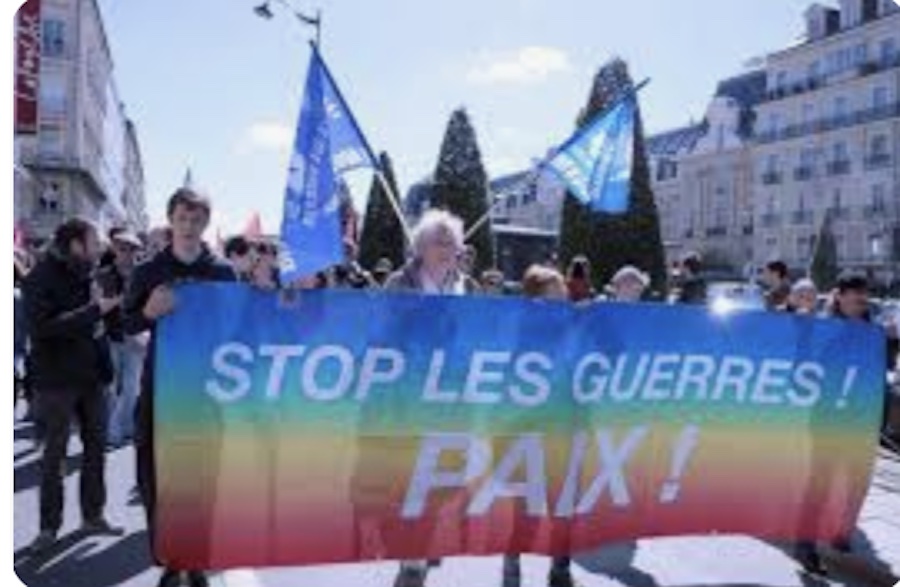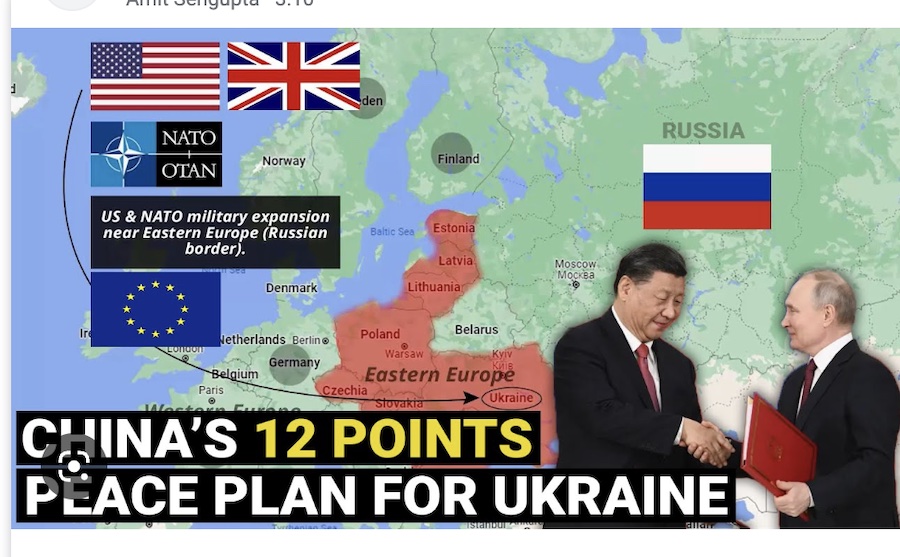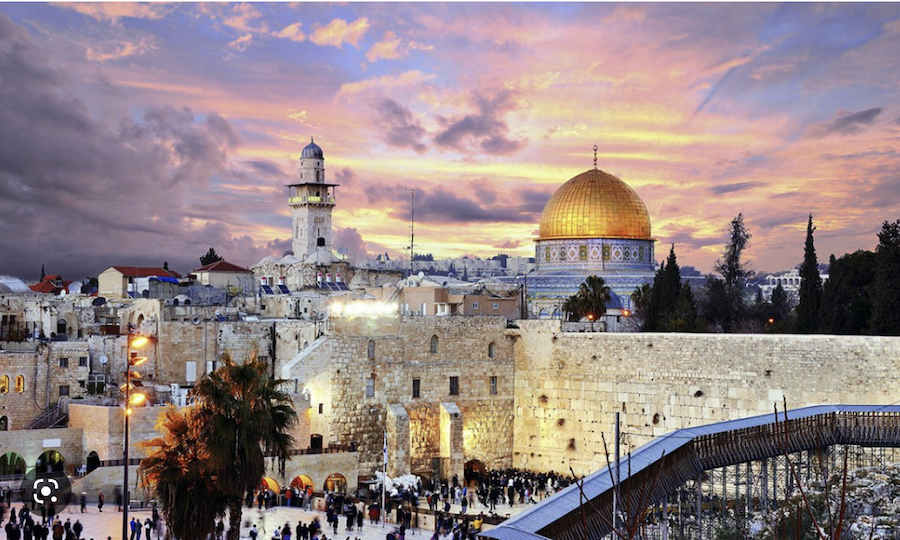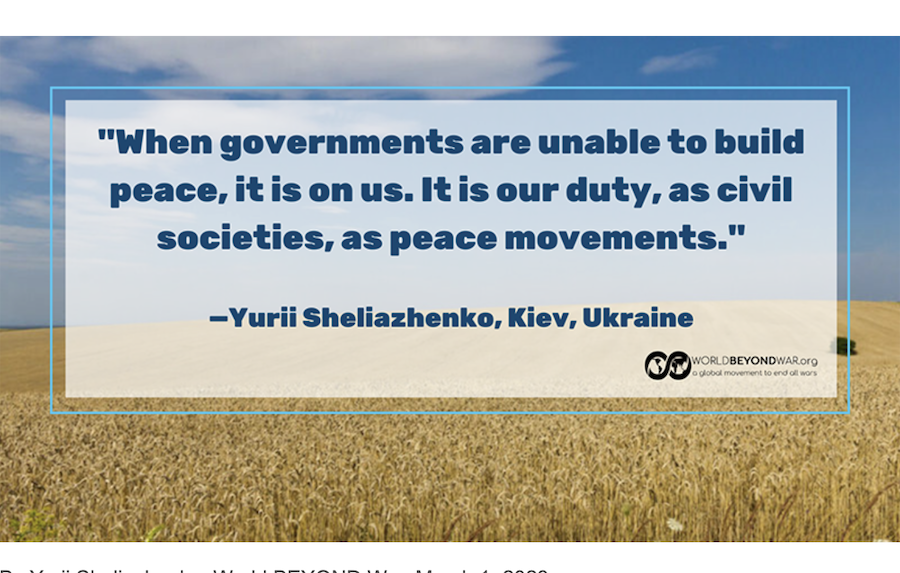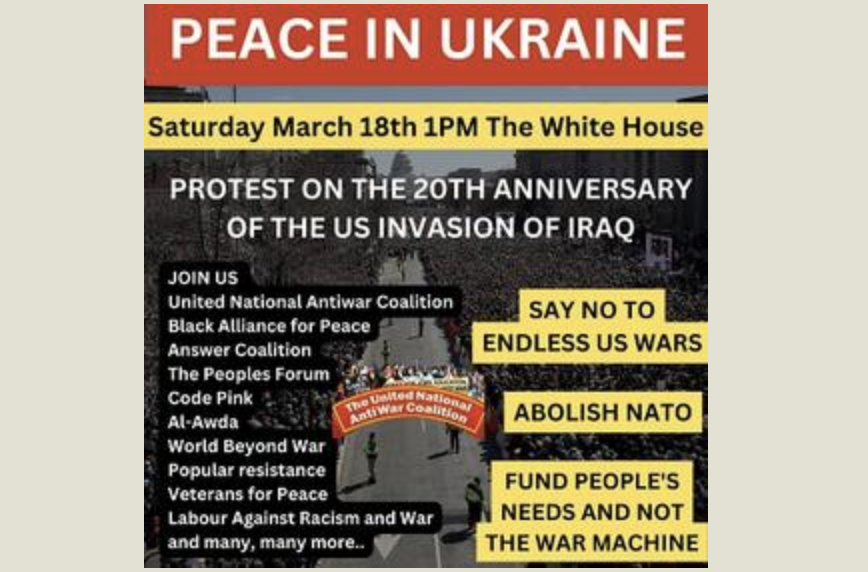DISARMAMENT AND SECURITY .
Excerpts from United Nations Press Release
The UN General Assembly held a debate on the declaration of Central Asia as a zone of peace, trust and cooperation (for background, see Press Release GA/12437). Many speakers commended that declaration, with some offering recommendations alongside their encouragement, as Central Asian countries showcased regional and national efforts. . . .

AKSOLTAN ATAEVA (Turkmenistan), expressing her gratitude to the General Assembly for its unanimous support in adopting a historic resolution for Central Asia by declaring it a zone of peace, trust and cooperation, pointed out that the concept of such zones enables the international community to create long-term security guarantees. Among other things, she spotlighted similar such initiatives in other regions; showcased the Central Asia region’s efforts on strengthening peace and stability, such as the United Nations Regional Centre for Preventive Diplomacy for Central Asia and its project; and highlighted its regional sustainable development projects, including on transport, logistics and infrastructure. The success of the Central Asian countries in maintaining a further strengthening of stable and lasting peace in the region notably depends on the support of the international community, she underscored, calling on all to cooperate to that end.
AKAN RAKHMETULLIN (Kazakhstan) said to coordinate its joint national efforts and those of the United Nations, his country will establish the United Nations Regional Centre for the Sustainable Development Goals for Central Asia and Afghanistan in Almaty. The hub will streamline the Organization’s inter-agency regional and interregional coordination and management to transform Central Asia into a zone of peace, security and sustainable development, with a spillover effect into Afghanistan.
Speaking as the Kazakhstan Chairmanship representative to the Conference on Interaction and Confidence Building Measures in Asia, he said the Conference considers the establishment of confidence-building measures, peace and dialogue as the primary basis for broad cooperation. It will achieve the goals of sustainable development and socioeconomic well-being on the vast Asian continent. The Central Asian region is facing unprecedented new and emerging challenges and the forum includes 28 States, with eight observers. The region’s entire perimeter is surrounded exclusively by Conference on Interaction and Confidence Building Measures in Asia member States. The Conference is a platform that gives Central Asia an outreach to other parts of the Asian continent and neighbouring subregions. Central Asia tends to gain considerably from the Conference’s multifaceted, multidimensional portfolios.
MARÍA DEL CARMEN SQUEFF (Argentina), underlining the international community’s recognition that the establishment of zones of peace can contribute to the strengthening of economic development and peace, highlighted her country’s experience as an active participant of the zone of peace and cooperation of the South Atlantic. This zone is notably not only one of peace and cooperation but is also a nuclear-weapon-free zone. She commended the efforts of Central Asian countries to promote confidence and cooperation at a time when it is more vital than ever. The success of this initiative, however, will depend on the joint work and determination of the zone’s member States as well as the support of the international community. In that regard, the current Assembly debate is a sign of that commitment and a promising signal, she said.
MUNIR AKRAM (Pakistan) said his country has made consistent efforts to promote peace and cooperation in its own and adjacent regions. The Government actively advocated for the creation of a nuclear-weapon-free zone in South Asia for more than two decades. This was thwarted by the nuclear explosions initiated by its neighbour. Pakistan has also supported the creation of a zone of peace in the Indian Ocean, as declared by the Assembly in resolution 2832. His delegation is concerned that the Indian Ocean is being drawn into a geostrategic construct that implies the renewal of rivalries and the emergence of new military alliances. With these efforts to escalate military and political competition, it is even more vital to preserve Central Asia as a zone of peace. A peaceful Central Asia can be a bulwark against the extension of conflicts from Europe to Asia and serve as a bridge of peace across the Eurasian landmass.
JONIBEK ISMOIL HIKMAT (Tajikistan) stressed that the Central Asian countries have demonstrated constructive and predictable inter-State relations at a time when the world is experiencing simultaneous crises in security, health, economics, politics and climate change. In recognizing the significance of economic and social development for its people and the region’s prosperity, his Government has focused on infrastructure development, energy projects and economic diversification; seeks to harness its water potential to drive economic growth and employment; and is open to cooperation to that end. Mitigating climate change, addressing waste and water pollution and ensuring environmental sustainability are pressing global issues, he continued, spotlighting several of Dushanbe’s initiatives to that end. Regarding its efforts on addressing shared security threats such as terrorism, its financing and drug trafficking, he reiterated his President’s call to build a security belt around Afghanistan while strengthening regional cooperation and coordination.
JOONKOOK HWANG (Republic of Korea) said it is highly commendable that these countries are aligning themselves with the principles of the Charter of the United Nations. The resolution addresses the importance of preventive diplomacy and the active role of women. To address the complex transboundary challenges, such as terrorism and climate change, an integrated approach is crucial. His delegation appreciates the role being played by the United Nations Regional Centre for Preventive Diplomacy for Central Asia, established in 2007. The Centre has led to initiatives to empower women and youth. His delegation supports the Center’s proactive role in addressing the challenges in Afghanistan, which affects peace and stability in the region and beyond. Climate issues are another crucial challenge facing the Central Asian countries and he welcomed efforts to reach solutions to the region’s water challenges. Many issues, such as land degradation, require the international community’s consistent attention. Noting the Republic of Korea’s expanding trade volume with the Central Asian region, he said the Government will continue to expand future economic partnerships with the region, including in digital transformation and health infrastructure.
GERARDO PEÑALVER PORTAL (Cuba) stressed that, to make headway towards a world of peace, the diversity of different political, economic, social, cultural and religious systems must be respected as must the principles and aspirations of the Charter of the United Nations alongside international law. Noting that the planet is now facing a crisis which began with the COVID-19 pandemic, he pointed out that the world has yet to learn from its mistakes — it continues to waste money by modernizing weapons, billions of dollars which could otherwise be used to achieve peace, sustainable development and a decent life. As such, he urged the international community to focus on eradicating poverty, hunger, disease, ignorance and colonialism’s consequences. It must also, among other things, address the unjust economic order that reproduces the privileges of rich countries while perpetuating the “lackings” of the poorest. There can be no peace without development, justice and equity, he underscored, spotlighting the United States’ embargo on his country.
SEDAT ÖNAL (Türkiye) said the international community is facing entwined, multi-faceted contemporary challenges, such as international peace and security, sustainable development and human rights. These challenges cannot be dealt with in isolation from each other. Greater international cooperation is crucial and each Member State must take action. Regional cooperation and ownership are essential and Türkiye has contributed to regional efforts to resolve conflicts and address disruptions in the food and energy supply chains. For example, the country participates in the Organization of the Black Sea Economic Cooperation. Central Asia is key to the region’s stability and this resolution is an important step that shows the collective political will of countries to bolster a culture of cooperation in managing energy resources, trade and transportation initiatives.
AIDA KASYMALIEVA (Kyrgyzstan) pointed out that consultative meetings among the region’s heads of State serve as an important platform for cooperation by ensuring peace and trust. The fourth such meeting in July 2022 notably confirmed the commitment of Central Asian countries to a constructive and mutually beneficial dialogue and resulted in a treaty on friendship, good-neighbourliness and cooperation for the region’s development. Highlighting a number of issues of importance, including the “Central Asia plus” format and the Regional Centre, she invited Member States and international organizations to further enhance their support of the Five Years of Action for the Development of Mountain Regions. She also announced that her country aims to reduce its greenhouse gas emissions by 44 per cent by 2030 and achieve carbon neutrality by 2050 through the development of hydropower. She then spotlighted her Government’s cooperation with Uzbekistan on delimiting their border as an example of dialogue and the search for mutually acceptable solutions.
(Article continued in right column)
(Article continued from left column)
JAIME HERMIDA CASTILLO (Nicaragua) said the Charter of the United Nations asks all Member States to maintain international peace and security and settle their disputes through peaceful means. The international community recognizes that the creation of zones of peace can help contribute to peace and stability in the specific areas and beyond. The creation of a zone of peace in Central Asia will help promote cooperation between peoples, countries and cultures. It is important to maintain territorial integrity and sovereignty as an important part of this work. Trade and economic openness is important. The Community of Latin American and Caribbean States (CELAC) created a zone of peace in 2014. Its people are committed to engage in friendly relations despite their differences. His delegation supports multilateralism. Yet there are still countries that do not apply a culture of peace and impose unilateral coercive measures. He rejected these measures, which are called sanctions, as unfair. He called for the repeal of these measures.
ANTJE LEENDERTSE (Germany) — noting that Central Asia faces serious challenges which include climate change, water scarcity, geopolitical tensions and the threat of terrorism — stressed that stronger regional cooperation will further promote prosperity by deepening intraregional trade and expanding the use of renewable energy and the protection of natural resources. The zone of peace in particular can create positive momentum to deepen ties and foster regional cooperation as a strong foundation for maintaining peace and security, bringing forward sustainable and green development and promoting human rights. For its part, Germany is supporting the Green Central Asia initiative, which focuses on joint regional projects in the fight against the climate crisis; cooperating with all Central Asian States to strengthen comprehensive security within the Organization for Security and Co-operation in Europe (OSCE); and funding multiple OSCE projects to foster long-term stability, resilience and prosperity for Central Asia’s young people.
BAKHTIYOR IBRAGIMOV (Uzbekistan) said Central Asian countries have great potential for cooperation and development as they share a common spiritual and cultural-historical heritage, common transport-communication networks and economies that complement one another. Tashkent strongly believes in strengthening practical cooperation with its neighbours to confront traditional threats of terrorism, organized crime and drug-trafficking, as well as new challenges such as illegal Internet activity. A long-term peace in Afghanistan can play an important role in connecting Central and South Asia. His delegation is ready to work with interested Member States to involve Afghanistan in regional economic processes, expand humanitarian assistance to the Afghan people, and promote important social and infrastructure projects. He recalled Tashkent’s initiative to establish, under United Nations auspices, an international high-level negotiating group. This group would develop and agree with the de facto government of Afghanistan on a road map of gradual implementation of obligations of the parties.
YOSHINO KOHEI (Japan) noted that 2022 marked the thirtieth anniversary of the establishment of his Government’s diplomatic relations with the five Central Asian countries. Tokyo also established its cooperation mechanism with the region in 2004 — the Central Asia plus Japan dialogue — when no other countries had such a framework of cooperation. His Government has notably worked with Central Asian countries on tackling a variety of challenges they face, including by providing $4.1 million in grant assistance to empower youth and strengthen social cohesion across the region and by cooperating with the United Nations Office on Drugs and Crime (UNODC) and the United Nations Development Programme (UNDP). Building on these achievements, Japan will continue to support peace, sustainability and sustainable development in the region, he pledged.
ROBERT A. WOOD (United States) said his delegation commends the creation of this zone as it creates a foundation for greater cooperation in the region and reinforces the integrated pillars needed for a peaceful society. The creation of a zone helps strengthen the security of States within the region. Yet he was disappointed that some delegations fought to prevent the resolution from reaffirming the importance of human rights and international law in sustaining peace. The resolution should note that human rights and international law are enshrined in the preamble of the Charter of the United Nations. His delegation was delighted that the role of women in maintaining peace was included. Women must always participate in the peaceful settlement of disputes at all levels of decision-making. His delegation is committed to supporting democratic goals in Central Asia.
JAMES KARIUKI (United Kingdom) stressed that cooperation and mutual support between Central Asian countries and their partners is critical given the security challenges facing the region, be it the deteriorating situation in Afghanistan or the economic uncertainty caused by the Russian Federation’s illegal invasion of Ukraine. In encouraging Central Asian States to continue their work with the Peacebuilding Commission and the Peacebuilding Fund, he underscored that political stability, long-lasting reform and sustainable economic development are necessary for those nations to fulfil their potential. For its part, the United Kingdom is supporting long-term reform and stability by strengthening its trade links with those countries and working with the region bilaterally and through its regional programming. He then pointed out that temperatures in the region are expected to rise faster than the global average; observed that this is already driving water scarcity and food insecurity; and called for sustainable solutions.
DAI BING (China) said his delegation supports the establishment of this zone in Central Asia as the world faces many complex challenges and solidarity and trust must be promoted. China has always supported cooperation that includes mutual benefits. The upcoming China-Central Asia Summit, which will be held on 18 and 19 May in China, will gather heads of State and will build a closer community and open a new chapter in regional relations. China will work with these countries to defend the principles of the Charter of the United Nations and build a zone of peace in Central Asia. China firmly supports the sovereignty, independence and territorial integrity of these countries. China opposes the interference of external forces in the internal affairs of Central Asian countries under any pretext. This would make the region a battleground for geopolitical gains. He supported efforts to combat terrorism, cybercrime and organized crime.
JOAQUÍN ALBERTO PÉREZ AYESTARÁN (Venezuela), welcoming Central Asian countries’ efforts to promote conflict prevention mechanisms and consolidate regional peace, security and stability, spotlighted his region’s zone of peace and its contributions towards strengthening peace and trust among the Organization’s Member States. Unfortunately, many of the goals and aspirations within the Charter of the United Nations continue to escape the world’s peoples who yearn for more peace and prosperity. In that vein, he called on all responsible States to end the ongoing use of inflammatory rhetoric; the use of zero-sum games; punitive, divisive and confrontational approaches; reckless, provocative and unilateral actions; double standards; and the further imposition of agendas of a dubious nature. Such actions in no way contribute to the aspirations of achieving a lasting peace or preventing the emergence of new conflicts or crises, he underscored, before renewing his Government’s firm determination to defend the Charter.
VASSILY A. NEBENZIA (Russian Federation) said his delegation is a long-standing and reliable partner of the Central Asian nations. For many years, it has consistently supported the region in its aim for gradual development and this resolution on the zone of peace is an example. The Russian Federation is also supporting the region by participating in summits. For example, the first Russian-Central Asian Summit was held in Astana on 14 November 2022. The region is of major geopolitical significance for the Russian Federation and good relations are essential to maintain its security and stability. Anti-terrorist activities are important. The Russian Federation is a key trading partner for the region and a major consumer of Central Asian goods. Maintenance of the transportation corridors is important to economic development. The Russian language is prominent in the region, making the Russian Federation an essential part of the region’s labour markets. He noted that Western parties are seeking to undermine stability through the use of sanctions and imposing their world view on this region. His delegation is committed to good neighbourly relations.
YASHAR T. ALIYEV (Azerbaijan) said that the zone of peace, trust and cooperation is a shining example of multilateralism and diplomacy which reinforces the three pillars of the United Nations. It notably contributes to the strengthening of international peace and security while promoting the purposes and principles of the Charter of the United Nations, he added. The region’s countries in particular play an important role in ensuring peace, stability and sustainable development as well as in promoting regional and international cooperation in areas such as science and technology, education, environment, trade, transport, culture and others. His Government notably enjoys friendly relations and constructive cooperation with these countries and has engaged closely in transport, logistics, energy, agriculture and tourism, to name but a few areas. As such, Baku attaches high importance to further enhancing cooperation by focusing on greater connectivity and communication.
(Editor’s note: The countries of Central Asia do not obey the NATO demand to boycott Russia. The leaders of all Central Asia countries went to Moscow on May 9 to take part in the annual ceremony celebrating the end of World War II.)

